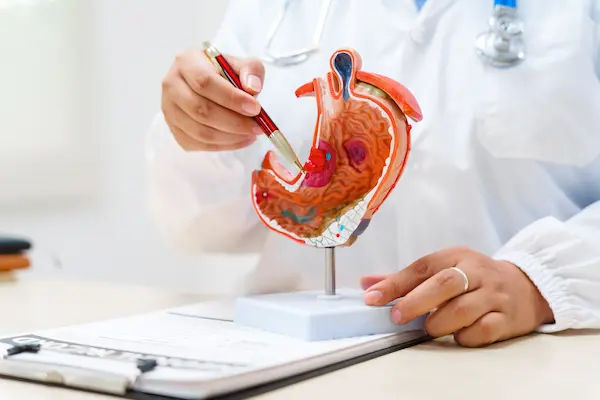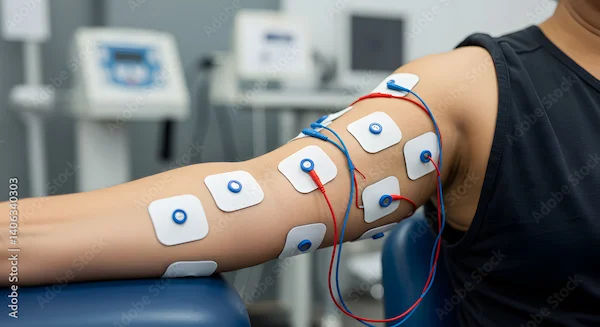B12 Content in Curd per 100g
Know the B12 content in 100g of curd. Why is it important, what is the deficiency of B12, who are at risk and more.

Written by Dr. Rohinipriyanka Pondugula
Reviewed by Dr. Shaik Abdul Kalam MD (Physician)
Last updated on 3rd Aug, 2025

Introduction
Vitamin B12 is an essential nutrient that plays a crucial role in maintaining nerve function, producing red blood cells, and supporting overall brain health. Since our bodies cannot produce this vitamin naturally, we rely on food sources to meet our daily requirements. One such food that often comes up in discussions about B12 is curd (yoghurt).
If you're wondering how much vitamin B12 curd contains and whether it can help meet your daily needs, this article will guide you through everything you need to know.
How Much Vitamin B12 Does Curd Contain?
The vitamin B12 content in curd can vary depending on factors like the type of milk used (whole, skimmed, or fortified) and the fermentation process. On average:
Regular curd (made from cow’s milk) contains about 0.2–0.4 mcg of vitamin B12 per 100g.
Fortified curd (enriched with extra B12) may have a higher content, sometimes up to 1 mcg or more per 100g.
While curd does provide some B12, it is not considered a high source compared to foods like eggs, meat, fish, and fortified cereals.
Why Is Vitamin B12 Important?
Vitamin B12 is vital for:
Nerve health – Prevents nerve damage and supports brain function.
Red blood cell production – Helps prevent anaemia (low red blood cell count).
DNA synthesis – Essential for cell growth and repair.
Energy levels – A deficiency can cause fatigue and weakness.
A deficiency in B12 can lead to:
The deficiency of B12 can lead to below symptoms:
Fatigue and weakness
Numbness or tingling in hands and feet
Memory problems and mood changes
Anaemia (low haemoglobin)
Consult Top Specialists for Personalised Tips
Who Is at Risk of Vitamin B12 Deficiency?
Some people are more likely to develop a B12 deficiency, including:
Vegetarians and vegans (since B12 is mainly found in animal products).
Older adults (due to reduced absorption with age).
People with digestive disorders (like celiac disease or Crohn’s disease).
Those who have undergone weight-loss surgery.
Individuals on long-term antacid medications.
If you fall into any of these categories, you may need to monitor your B12 intake more carefully.
Can Curd Alone Meet Your Daily B12 Needs?
The recommended daily intake (RDI) of vitamin B12 is:
2.4 mcg for adults
2.6 mcg for pregnant women
2.8 mcg for breastfeeding women
Since 100g of curd provides only about 0.2–0.4 mcg of B12, you would need to consume a very large quantity to meet your daily requirement, which isn’t practical.
Better Dietary Sources of B12
If you want to increase your B12 intake, consider adding:
Animal-based foods: Eggs, fish (salmon, tuna), chicken, dairy products (milk, cheese).
Fortified foods: Breakfast cereals, plant-based milk (soy/almond milk with added B12).
Supplements: If dietary intake is insufficient, B12 supplements (tablets/injections) may be needed.
Tips to Boost Vitamin B12 Absorption
Even if you consume enough B12, your body may not absorb it efficiently. Here’s how to improve absorption:
1. Pair with folate-rich foods (leafy greens, lentils) – Folate helps in B12 utilisation.
2. Limit alcohol – Excessive alcohol can reduce B12 absorption.
3. Check stomach acid levels – Low stomach acid (common in older adults) can hinder B12 absorption.
4. Consider fortified foods if you follow a vegetarian/vegan diet.
When Should You Get Tested for B12 Deficiency?
If you experience symptoms like:
Constant fatigue
Numbness in hands/feet
Memory issues
Pale skin or dizziness
Final Thoughts
While curd does contain some vitamin B12, it is not a primary source. If you rely on dairy for B12, consider including other B12-rich foods or fortified options in your diet. If you suspect a deficiency, consult a doctor and get tested to ensure timely treatment.
Consult Top Nutritionists
Consult Top Specialists for Personalised Tips

Dr. Ramalinga Reddy
General Physician
5 Years • MBBS MD General medicine
Bengaluru
PRESTIGE SHANTHINIKETAN - SOCIETY CLINIC, Bengaluru
Dt. Ila Sharma
Clinical Nutritionist
18 Years • Master in food & Nutrition
Gurugram
VIPUL GREENS - SOCIETY CLINIC, Gurugram
Ms. Bhavana Shetty
Dietician
7 Years • DDHN & Masters in Clinical Nutrition & Dietetics
Bangalore
Apollo Sugar Clinic, Seetha circle bangalore, Bangalore
Dr Sumanth R
General Physician
2 Years • MBBS
Bengaluru
PRESTIGE SHANTHINIKETAN - SOCIETY CLINIC, Bengaluru
Dr. Sasikamalam
General Practitioner
1 Years • MBBS
COIMBATORE
Apollo Sugar Clinic Coimbatore, COIMBATORE
Consult Top Nutritionists

Dr. Ramalinga Reddy
General Physician
5 Years • MBBS MD General medicine
Bengaluru
PRESTIGE SHANTHINIKETAN - SOCIETY CLINIC, Bengaluru
Dt. Ila Sharma
Clinical Nutritionist
18 Years • Master in food & Nutrition
Gurugram
VIPUL GREENS - SOCIETY CLINIC, Gurugram
Ms. Bhavana Shetty
Dietician
7 Years • DDHN & Masters in Clinical Nutrition & Dietetics
Bangalore
Apollo Sugar Clinic, Seetha circle bangalore, Bangalore
Dr Sumanth R
General Physician
2 Years • MBBS
Bengaluru
PRESTIGE SHANTHINIKETAN - SOCIETY CLINIC, Bengaluru
Dr. Sasikamalam
General Practitioner
1 Years • MBBS
COIMBATORE
Apollo Sugar Clinic Coimbatore, COIMBATORE




